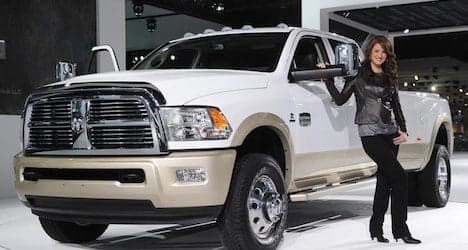Swiss drive more diesel cars: latest figures

More motor vehicles were on the road in Switzerland last year than ever before, including an increasing number of diesel cars, government figures released on Tuesday show.
A total of 402,117 new vehicles were registered in 2013, 6.7 percent less than in 2012, which was a record year, the federal statistics office said.
But the total fleet of vehicles grew by 1.6 percent to 5.7 million, a little more than three-quarters of them passenger cars.
For the first time, the total number of diesel cars exceeded a million units, rising 10.9 percent to 1,035,843 in 2013 from the previous year.
The statistics office said diesel vehicles accounted for 24 percent of passenger cars, compared to just four percent in 2000.
Diesels typically get 20 to 30 percent better mileage than gas combustion engines.
Four-wheel drive vehicles amounted to a quarter of all passenger cars in Switzerland, although their popularity varied from one canton to the other.
For example, in the mountain canton of Valais, more than 58 percent of cars were four-by-fours, compared to 17.7 percent in Basel-City.
The percentage of hybrid (up 24 percent) and electric cars (up 53 percent) rose sharply, although they still account for a tiny percentage of the overall fleet.
Switzerland is renowned for driving the biggest cars in Europe, but the average size of the car motor dipped to 1,950 cubic centimetres, down from 1,958 cc the previous year.
The statistics office noted that the number of motor vehicles operating on Swiss roads had doubled in the past 30 years.
Comments
See Also
A total of 402,117 new vehicles were registered in 2013, 6.7 percent less than in 2012, which was a record year, the federal statistics office said.
But the total fleet of vehicles grew by 1.6 percent to 5.7 million, a little more than three-quarters of them passenger cars.
For the first time, the total number of diesel cars exceeded a million units, rising 10.9 percent to 1,035,843 in 2013 from the previous year.
The statistics office said diesel vehicles accounted for 24 percent of passenger cars, compared to just four percent in 2000.
Diesels typically get 20 to 30 percent better mileage than gas combustion engines.
Four-wheel drive vehicles amounted to a quarter of all passenger cars in Switzerland, although their popularity varied from one canton to the other.
For example, in the mountain canton of Valais, more than 58 percent of cars were four-by-fours, compared to 17.7 percent in Basel-City.
The percentage of hybrid (up 24 percent) and electric cars (up 53 percent) rose sharply, although they still account for a tiny percentage of the overall fleet.
Switzerland is renowned for driving the biggest cars in Europe, but the average size of the car motor dipped to 1,950 cubic centimetres, down from 1,958 cc the previous year.
The statistics office noted that the number of motor vehicles operating on Swiss roads had doubled in the past 30 years.
Join the conversation in our comments section below. Share your own views and experience and if you have a question or suggestion for our journalists then email us at [email protected].
Please keep comments civil, constructive and on topic – and make sure to read our terms of use before getting involved.
Please log in here to leave a comment.